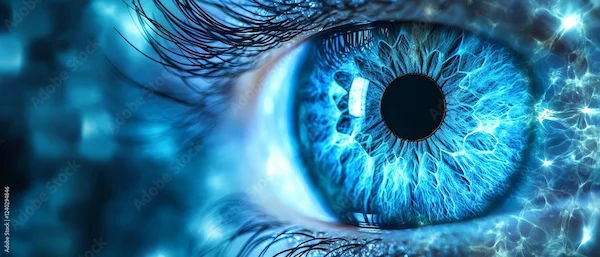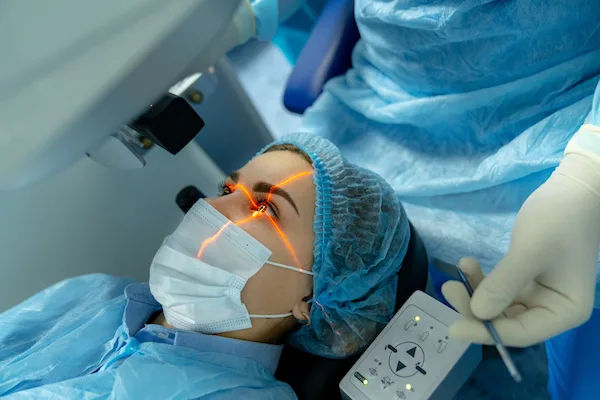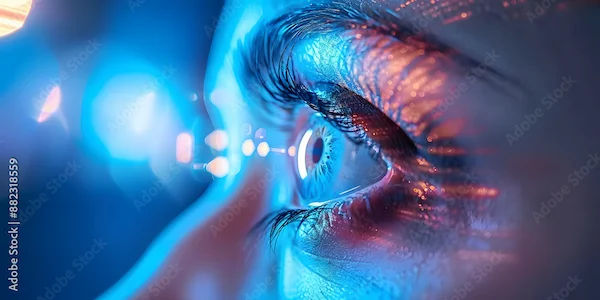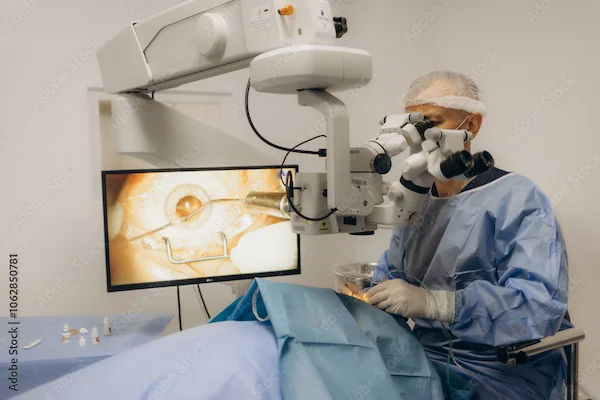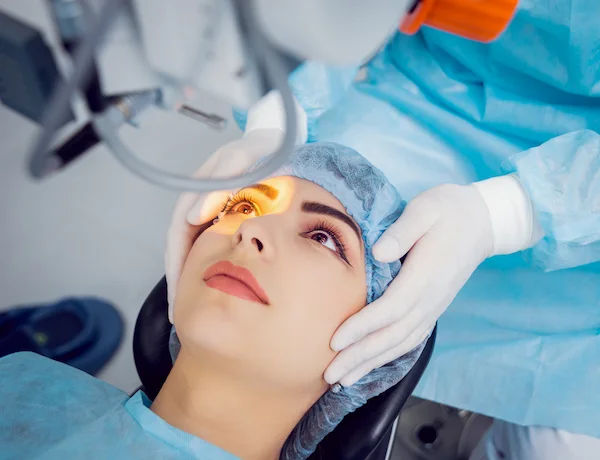Why Did I Lose My Near Vision After Cataract Surgery?
Experiencing blurry near vision after cataract surgery? Learn why it happens and discover effective solutions like glasses, advanced lenses, or laser correction.

Written by
Last updated on 7th Jul, 2025
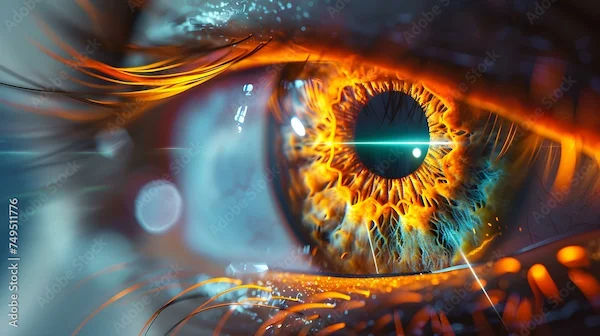
Introduction
If you’ve recently undergone cataract surgery and noticed that your near vision has become blurry, you’re not alone. Many patients experience this issue, and while it can be frustrating, it’s usually manageable. This article will explain the possible reasons for near vision problems after cataract surgery and what might help improve your sight.
Understanding Cataract Surgery
Cataract surgery involves removing the cloudy natural lens (cataract) from your eye and replacing it with an artificial intraocular lens (IOL). This procedure restores clear vision for most people, but sometimes, near vision can be affected.
Why Does Near Vision Decline After Cataract Surgery?
Several factors may contribute to blurry near vision following cataract surgery.
1. Type of Intraocular Lens (IOL) Used
Different types of IOLs offer different visual outcomes.
Monofocal IOLs: These lenses are set for one distance—usually distance vision. While they provide excellent clarity for far objects, they don’t adjust for near vision, meaning you may still need reading glasses.
Multifocal or Accommodating IOLs: These lenses help with both near and far vision but may not fully eliminate the need for glasses in all situations.
2. Presbyopia (Age-Related Near Vision Loss)
Presbyopia is a condition in which the eye’s lens naturally loses flexibility with age, making it harder to focus on close-up objects.
Cataract surgery doesn’t reverse presbyopia.
Even with an IOL, you may still need glasses for reading or close-up tasks.
3. Residual Refractive Error
Sometimes, the IOL power calculation isn’t perfect, leading to slight blurriness in near or distance vision. This can often be corrected with glasses or a minor laser procedure.
4. Post-Surgery Healing
Your eyes take time to adjust after surgery. Swelling or mild inflammation can temporarily affect vision, including near focus.
Consult Top Specialists for Personalised Health Advice
How Can You Improve Near Vision After Cataract Surgery?
There are several ways to manage blurry near vision and improve your comfort during recovery.
1. Use Reading Glasses
If you have monofocal IOLs, reading glasses are often the simplest solution for clear near vision.
2. Consider Multifocal or Extended Depth-of-Focus IOLs
If you haven’t had surgery yet, discuss advanced IOL options with your doctor.
If you’ve already had surgery, some patients may qualify for a lens exchange or supplementary procedures.
3. Laser Vision Correction (If Needed)
Procedures like LASIK or PRK can fine-tune vision if there’s a residual refractive error.
4. Give Your Eyes Time to Adjust
It may take a few weeks for your vision to stabilise. Follow your doctor’s post-op care instructions carefully.
When to See a Doctor?
If your near vision doesn’t improve over time or worsens, consult your eye specialist. Sometimes, complications like posterior capsule opacification (PCO) can cause blurry vision, but this is easily treated with a quick laser procedure.
Final Thoughts
Losing near vision after cataract surgery is common but usually manageable. Understanding the cause—whether it’s the type of lens, presbyopia, or healing—can help you take the right steps. If you’re struggling with vision after surgery, don’t hesitate to reach out to an eye specialist for guidance.
If you’re experiencing vision issues after cataract surgery, book a consultation with an expert at Apollo 24|7 for personalised advice and care.
Consult Top Eye Specialists
Consult Top Specialists for Personalised Health Advice
Dr. S Venkateswaran
Ophthalmologist
35 Years • MBBS, PGD (OPTHALMOLOGY)
Tiruvannamalai
Shiva Eye And General Hospital, Tiruvannamalai
(25+ Patients)

Dr Rajesh Rastogi
Ophthalmologist
33 Years • MBBS, MS Ophthalmology
New Delhi
Rotary Diabetic Centre, New Delhi

Dr. Sneha T Khurana
Ophthalmologist
9 Years • MBBS, MS Ophthalmology
Gurugram
GS multispeciality clinic, Gurugram
Dr. Akashdipta Saha
Ophthalmologist
4 Years • MBBS, MD(Ophthalmology), Fellowship in Retina & Vitreous
Delhi
AIIMS, Delhi
Dr. Harshavardhan Reddy
Ophthalmologist
3 Years • MBBS , MS (Ophthalmology)
Hyderabad
Ram Dev Rao Hospital, Hyderabad
Consult Top Eye Specialists
Dr. S Venkateswaran
Ophthalmologist
35 Years • MBBS, PGD (OPTHALMOLOGY)
Tiruvannamalai
Shiva Eye And General Hospital, Tiruvannamalai
(25+ Patients)

Dr Rajesh Rastogi
Ophthalmologist
33 Years • MBBS, MS Ophthalmology
New Delhi
Rotary Diabetic Centre, New Delhi

Dr. Sneha T Khurana
Ophthalmologist
9 Years • MBBS, MS Ophthalmology
Gurugram
GS multispeciality clinic, Gurugram
Dr. Akashdipta Saha
Ophthalmologist
4 Years • MBBS, MD(Ophthalmology), Fellowship in Retina & Vitreous
Delhi
AIIMS, Delhi
Dr. Harshavardhan Reddy
Ophthalmologist
3 Years • MBBS , MS (Ophthalmology)
Hyderabad
Ram Dev Rao Hospital, Hyderabad
